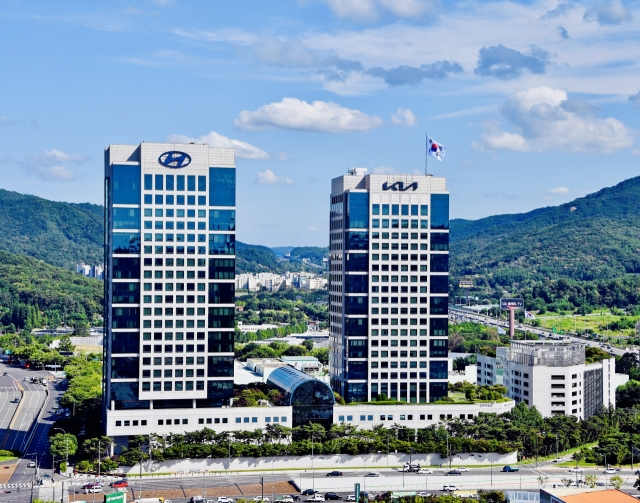
The combined overseas production of Hyundai Motor Co. and Kia Corp. surpassed 3.68 million units in 2023, setting the biggest offshore output since the outbreak of the COVID-19 pandemic, data showed Monday.
According to data from the Korea Automobile Manufacturers Association, Hyundai Motor and Kia, South Korea's leading automakers, produced 3,678,831 finished vehicles at 13 overseas production bases last year.
Hyundai produced 2,243,069 vehicles in eight countries -- the United States, India, China, Turkey, Czech Republic, Brazil, Indonesia and Singapore -- and Kia produced 1,435,762 vehicles in the US, China, Slovakia, Mexico and India.
Last year's combined output represents a 2.9 percent increase compared with 2022. It also marked their biggest tally in four years since 2019 before the onset of the pandemic.
Per nation, vehicles produced from India amounted to 1.08 million units, followed by those from the US, China and Slovakia, with 727,000 units, 394,249 units and 352,240 units, respectively.
Within an overall growth trajectory in production, the consistent production decline in China stood out. The combined output of the companies in China amounted to 1.83 million units in 2016.
Russia stood out as well, as Hyundai, which has operated a production base in Saint Petersburg, did not produce a single vehicle in the country last year.
Hyundai had consistently produced over 200,000 units annually in Russia from 2012 to 2022. However, production sharply declined to around 40,000 units in 2022 and has remained suspended since the outbreak of the Ukrainian War.
For the first time, the company last year produced 595 vehicles in Singapore, where it opened the Hyundai Motor Group Innovation Center Singapore.
Launched last year, the center serves as a test bed where Hyundai Motor Group conducts research and development into human-centered future mobility centered on technology, manufacturing and business. (Yonhap)





